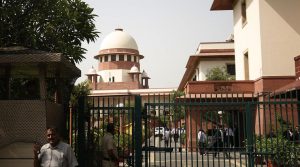$100 Website Offer
Get your personal website + domain for just $100.
Limited Time Offer!
Claim Your Website NowSupreme Court asks AIIMS to formulate national action plan to combat drug menace
Source – indianexpress.com

The Supreme Court has asked the All India Institute of Medical Sciences (AIIMS) to formulate a national action plan to curb the growing menace of drug abuse in the society, including by school-going children.
A bench headed by Chief Justice Dipak Misra also made it clear to Additional Solicitor General Maninder Singh, representing the Centre, that no extension of time would be granted to the government and AIIMS in formulating the policy on drug menace as the issue was of “national importance”.
“Having heard Maninder Singh, Additional Solicitor General for Union of India, we direct the authorities of All India Institute of Medical Sciences (AIIMS) to finalise the report of the High Powered Committee on or before September 7.
“It is hereby made clear that no further extension shall be granted. The competent authorities of AIIMS shall bear in mind that framing of this policy is of national importance and it cannot brook any delay,” the bench, also comprising justices A M Khanwilkar and D Y Chandrachud, said.
The order came when lawyer Sravan Kumar, appearing for Ketireddy Jagadishwar Reddy, alleged that the 2016 verdict of the apex court on the plea of NGO Bachpan Bachao Andolan (BBA) was not being complied with.
While deciding the PIL of BBA of Nobel laureate Kailash Satyarthi, the apex court, in December 2016, had issued a slew of guidelines and had asked the Centre to formulate within six months the national action plan to curb rising substance abuse cases among school children and had also ordered a national survey to gauge the extent of the menace.
The bench took note of the submission of the lawyer and made it clear that its directions have to be complied with without any further delay. “A copy of the order be handed over to Balasubramanian assisting Maninder Singh (ASG) so that he can communicate it to the Director, AIIMS,” the bench said.
The AIIMS has to formulate the national policy to curb the rising drugs menace in society, besides formulating the measures to educate people about the ill effects of substance abuse.
Earlier also, the bench had taken a similar view on the plea filed by the NGO seeking enforcement of the apex court verdict delivered on its PIL in 2016. Senior advocate H S Phoolka, appearing for the NGO, had said that the Centre has failed to comply with the judgement.
Besides directing formulation of the action plan, the bench had asked the government to undertake a nationwide survey to identify the prevalence of drug abuse across the country.
While asking the governments — both at the Centre and in the states — to create awareness about the serious consequences of drug abuse, the court had directed the Centre to include in the school curriculum the subject on harmful effects of using drugs.
The national capital alone has approximately one lakh street children and substance abuse is reported as a major health problem in this segment of the population, the PIL had said.
A study by the Delhi Commission for Protection of Child Rights on substance abuse by kids showed last year that 100 per cent of the children in conflict with the law were drug abusers, 95.5 per cent of them staying in childcare institutions were on drugs and 93 per cent of street children consumed narcotics.
The study also said 88 per cent of the children consumed drugs due to “peer pressure”, the NGO had said.
The NGO in its PIL, filed in 2014, had sought a direction to formulate a national action plan for children on drugs and substance abuse including all issues of identification, investigation, recovery, counselling and rehabilitation.
It had also sought creation of model syllabus on ill-effects of drugs and substance abuse.



